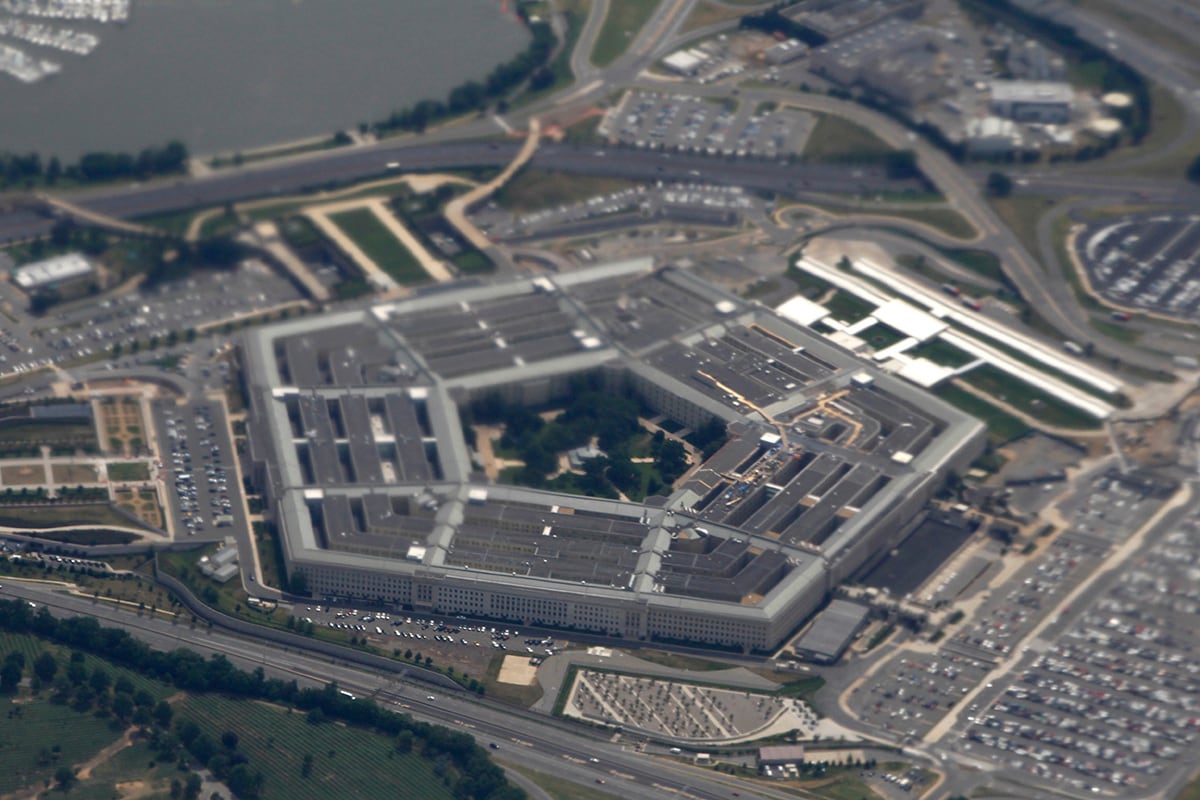A controversial, potentially $10 billion, 10-year Pentagon contract for cloud computing services could be awarded by the close of summer, according to the Department of Defense’s technology chief.
“I think right now, the [Joint Enterprise Defense Infrastructure] award will probably be sometime toward the end of August,” said Dana Deasy, the DoD’s chief information officer, speaking June 25 at a Defense Writers Group breakfast.
RELATED

The Defense Department has narrowed down the finalists for the sole-provider JEDI contract to Amazon Web Services and Microsoft. However, the selection process has prompted a lawsuit in the U.S. Court of Federal Claims from Oracle, another cloud provider that was eliminated from consideration and whose challenge of the fairness of the bidding process threatens to prolong the JEDI decision.
But Deasy explained that contract award and court decision are “two disconnected events.”
“We’re not waiting for a decision [in] that it doesn’t impact the source selection process,” he said.
Instead, the department is moving forward with its preparation for JEDI as if the program won’t be delayed further, Deasy said. In the last six months, “cloud awareness sessions” have been held with different combatant commands and other services.
“And I will tell you, there is a significant amount of pent-up demand just waiting to use the capability once it comes online,” Deasy said.
Further delays would impede already prepared plans to use the new technology to by various services in DoD, he said.
“The sufferers in all this are the war fighter because there is [sic] active sets of programs that several of the combatant commands right now are depending on when that contract gets released — they’re going to start building out on,” Deasy said.
If there is any prolonged delay in awarding and implementing JEDI, it could force different components in the DoD to build their own solutions, Deasy said, adding that he felt that model would be “really a sad outcome if that got to that point.”
“That does not serve the department’s interests well; that does not serve the war fighter well,” he said.
In a recent court filing in the Oracle case, Air Force Lt. Gen. Bradford Shwedo, director for Command, Control, Communications and Computer/Cyber, said delaying JEDI would harm war fighters’ in hot spots such as the Korean Peninsula and put the United States behind adversaries “who are also weaponizing the use of their data.”
“Delaying the implementation of the JEDI cloud will negatively impact our effort to plan, fight and win in communications compromised environments, and will negatively impact our efforts to improve force readiness and hamper our critical efforts in AI,” Shwedo wrote.
The Oracle court decision, according to multiple reports, is expected to come sometime after July 10 oral arguments.
Mark Pomerleau contributed to this report.
Andrew Eversden covers all things defense technology for C4ISRNET. He previously reported on federal IT and cybersecurity for Federal Times and Fifth Domain, and worked as a congressional reporting fellow for the Texas Tribune. He was also a Washington intern for the Durango Herald. Andrew is a graduate of American University.





